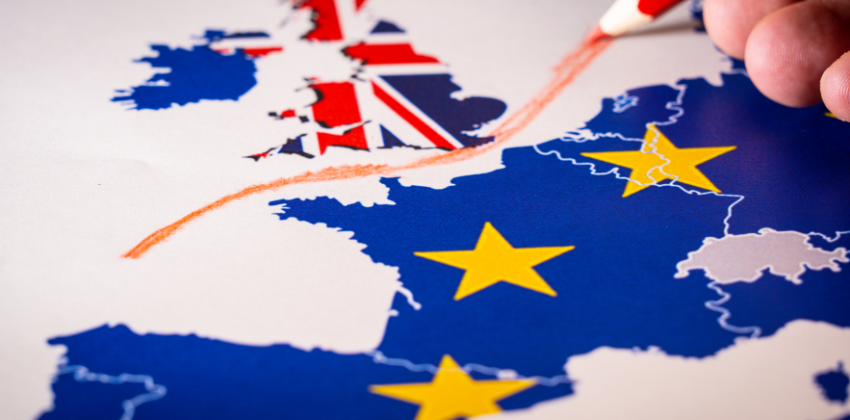Services List
You’ve put in the hours, blood, sweat and tears and your business is ready to step out into the world. For companies of any size, expanding internationally is an exciting possibility with the potential for new markets, attracting a variety of new customers and boosting business income. It can be both a great opportunity and a daunting prospect for a small business to consider expanding into the European Union (EU) market. In this series of articles, we will look at how you can scale your business across borders, and important factors that you should keep in mind.

Covered in this article
Understanding the EU Market Landscape
Identifying Potential EU Market Segments
Key Sectors and Opportunities
Competitor Analysis in the EU
Cultural and Business Etiquettes in the EU
Starting Your Journey
Understanding the EU Market Landscape
The Economic Environment
As a Small to Medium Enterprise (SME) based in South Africa, penetrating the EU market, given its sheer size and economic power, can appear quite intimidating. If you are running a business in South Africa, you would be accustomed to a country with a population of more than 60 million people, high unemployment levels of around 33%, frequent power outages (load shedding), high inflation and interest rates and a fluctuating currency. You will have encountered a very diverse population - spread over a large geographical area, across nine provinces and speaking 11 official languages - with a Gross Domestic Product of around US$406 billion in 2022.
In contrast, the EU, composed of 27 member countries, is home to over 445 million consumers and represents one of the world's largest economies, with an estimated GDP of $16.64 trillion in 2022. The economy is exceptionally diverse, encompassing both emerging and developed markets across various industries.
Navigating the EU Regulatory Environment
Understanding the EU market involves understanding economic dynamics and becoming familiar with the very robust regulatory framework in place. From General Data Protection Regulation (GDPR) for data privacy, and CE marking requirements for product safety, to VAT regulations for taxation, it's crucial to be aware of and comply with these regulations. Your best bet is to consult with a legal advisor who specialises in these matters. The EU website also offers several resources including what you need to know about doing business in this market.
Cultural Differences
The cultural diversity in the EU is vast. With 24 official languages and a multitude of traditions and customs, appreciating and respecting this cultural diversity is key. These cultural nuances can significantly influence consumer behaviour and business operations. If you are considering expanding your business into the EU, you need to be culturally competent to ensure successful market entry and growth.
Identifying Potential EU Market Segments
When assessing the EU market segments, you need to consider demographics, psychographics and consumer behaviours.
Demographic Analysis
With a diverse population, the EU’s market segments can differ substantially between member states. If you want to grow in this market, you need to understand the age, gender, income level, education, and occupation of your potential consumers, which can guide your marketing efforts and product offerings.
Psychographic Analysis
The lifestyle, interests, attitudes, and values of your potential customers can also provide you with critical insights into the new market. A psychographic analysis can help you target your marketing more effectively and tailor your offerings to meet your customers' specific needs and preferences.
Behavioural Analysis
Knowing how your potential customers behave can significantly influence your business strategy. Key questions to ask include: What are their consumption habits? How often do they make purchases? What triggers their purchases? The answers to these questions can help you adapt your products or services to meet their needs effectively.
Key Sectors and Opportunities
The Single Market Approach
The European Single Market, established in 1993, guarantees the free movement of goods, services, people and capital in the EU - also referred to as the “4 freedoms”. The benefits of this single-market approach include:
- Offering residents a wider choice of products and services at competitive prices
- High standards when it comes to health, safety and environmental protection
- New opportunities for business - helping SMEs grow and open up trade opportunities through access to the largest single market area in the world
- Working towards common solutions to global challenges such as climate change, the energy crisis and digital transformation.
Industry Sectors
The size of the EU market also allows for extensive variety in industry sectors, each with its own sub-sectors - from Automotive Industries to Biotechnology, Chemicals and Cosmetics to Electrical and Electronic Engineering, Raw Materials, Textiles, Tourism and more. Some of the growing sectors you can explore include:
1. Tech and Innovation - As a technological hub, the EU offers significant opportunities in AI, cybersecurity, fintech, and e-commerce. Businesses in these sectors may find a dynamic and rapidly growing market ready for their offerings.
2. The Green Economy - With its strong focus on environmental sustainability, the EU is a promising market for businesses in the field of renewable energy, eco-friendly products, and sustainability services.
3. Agri-Food - European consumers are increasingly valuing high-quality food and drink products, particularly those that are organic, locally sourced, or exotic. South African businesses in the agri-food sector may find the EU a receptive market for their offerings.
Competitor Analysis in the EU
The sheer size of the EU also means extensive competition in the market. Before you take the next steps in expanding your business across the border, you need to conduct a detailed competitor analysis. This involves:
1. Identifying your Competitors - Understanding who your direct and indirect competitors are is a fundamental step in strategising your entry into the EU market.
2. Analysing their Strategies - Take a close look at your competitors' marketing tactics, pricing structures, and distribution channels. These insights can provide you with valuable information on the dynamics of the EU market.
3. Evaluating their Strengths and Weaknesses - Understanding your competitors' strengths and weaknesses can help you differentiate your product or service, as well as identify opportunities and risks in the market. This necessitates you to take a closer look at your own business strengths and weaknesses including your existing processes and whether they will be efficient and effective in the EU market.
4. Understanding their Customer Base - Understanding who your competitors' customers are and what they like or dislike about your competitors' offerings can help you refine your own offerings.
Cultural and Business Etiquettes in the EU
If you are considering expanding your business, you would do well to consider the motto of the European Union - “United in Diversity”. Culture and Business Etiquette in the EU may differ from that of South Africa and between the various member states in the EU. Nevertheless, it remains a critical factor if you want to expand your business into this market. Some of the most important aspects you would need to consider are:
Respect for Diversity
Diversity is the norm in the EU. Respecting this diversity can help your business build strong relationships with your customers and partners - through enhanced cultural exchange and mutual understanding. Diversity also promotes different ideas and perspectives, which can foster creativity, innovation and progress.
Communication
Communication norms vary across the EU. Some cultures may prefer direct communication, while others may value a more subtle approach. Adapting your communication style to suit your target market can improve business relationships and negotiations. Even word choices may be important - think of how we use the phrase "just now" in SA. This can be understood in a very different manner in European countries, even interpreted as meaning "immediately" while the SA interpretation may be "in a little while" implying some time delay.
Various other business terms which are commonly used in South Africa may not be widely known in the EU for example, "BEE". In South Africa, BEE is a government policy aimed at increasing the ownership and participation of previously disadvantaged groups in the business sector. This term does not exist in the same context in European countries. Another example is "tender" - while it is a common term used worldwide, in South Africa, tenders often refer to formal offers to supply goods or services to the government as a part of public procurement.
Punctuality
Punctuality is often regarded as a fundamental value in many business cultures across the globe. Being on time for business appointments (whether physical or remote) is often seen as a sign of respect in many EU countries. It also displays professionalism - it conveys the message that you take your responsibilities seriously and that others can rely on you to honour your commitments. The EU is a fast-paced environment, business schedules may be tight and making sure that you are on time can help build trust and credibility with your business partners and customers.
Business Meetings
Business meetings in the EU are typically formal and structured, with a clear agenda and objectives. Thorough preparation for these meetings is essential. If everyone arrives on time and is well prepared, this contributes to efficiency and can ease unnecessary tensions. Following these guidelines can help you and your business make a good impression in the market.
Starting Your Journey
For a South African SME stepping into the EU, this is no overnight sprint. Instead, it is a journey that demands careful planning, understanding, and flexibility. Starting with these insights, you can take your business forward towards successful expansion into the EU. You will also need to navigate the EU regulatory environment and various practical aspects of expansion, including building business partnerships and establishing your physical and digital presence, adapting your marketing and sales strategies and leveraging technologies to grow your business.





